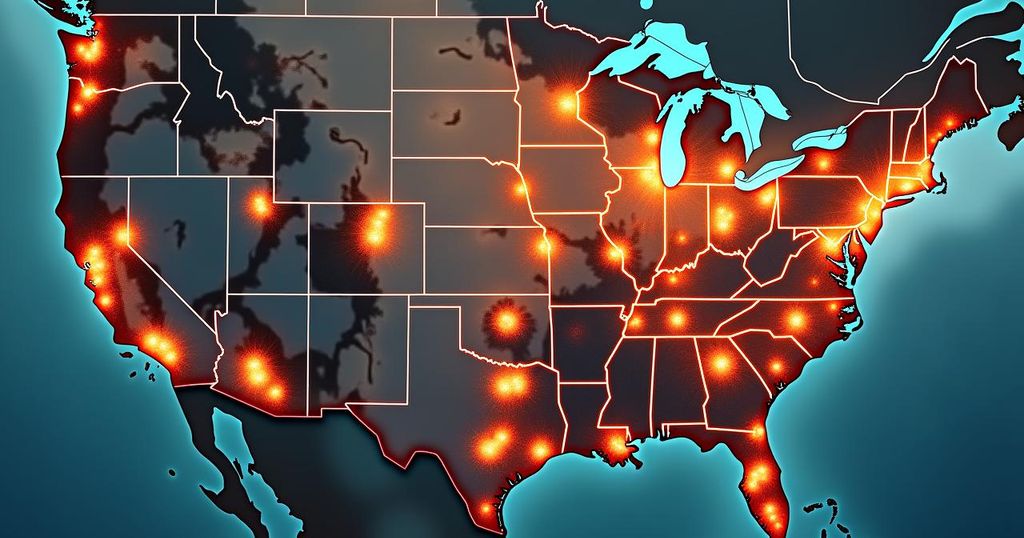Hurricane Helene, a Category 4 hurricane that made landfall on September 26, 2024, wreaked havoc across six states, resulting in over 230 fatalities and widespread destruction. The storm’s immense size and rapid movement caused significant wind damage and unprecedented rainfall, especially in mountainous regions, leading to record flooding. Helene’s impacts serve as a stark reminder of the need for a holistic approach to understanding and assessing hurricane devastation, particularly in light of climate change.
Hurricane Helene stands out as an unprecedented disaster extending over more than 500 miles inland from the Florida coast, resulting in significant destruction across six states: Florida, Georgia, South Carolina, North Carolina, Tennessee, and Virginia. The storm caused at least 230 fatalities and devastated numerous towns by flooding, damaging infrastructure, and claiming homes. Originating as a Category 4 hurricane with sustained winds of 140 mph near Perry, Florida, Helene’s impact was compounded by its expansive size and rapid movement of approximately 30 mph when it made landfall on September 26, 2024. This trajectory allowed Helene’s powerful winds to reach areas typically unaffected by such damaging winds, leading to power outages impacting over 2 million homes, particularly in Georgia and South Carolina. The storm’s enormity, spanning roughly 400 miles, contributed significantly to a near-record storm surge that reached approximately 15 feet along the Big Bend area of Florida. Cedar Key experienced a storm surge of about 9.3 feet, which was notably high compared to historical data. In contrast, areas such as Tampa Bay reported surges exceeding six feet, leading to fatalities along the coast. In addition to wind and storm surge, Helene’s torrential rains wreaked havoc, particularly in the mountains where orographic uplift resulted in enhanced precipitation. This led to record river crests, such as the French Broad River, which peaked at 24.67 feet, outpacing the previous century-old record. The extensive rainfall, influenced by the landscape, severely impacted cities like Asheville, North Carolina, already saturated from prior storms. Hurricane Helene serves as a crucial reminder that the effects of hurricanes cannot be accurately assessed by wind speed alone. The current climate trends indicate that, as ocean temperatures rise, the characteristics and intensity of such storms are likely to evolve, necessitating reevaluations of hurricane risk assessments in the future.
The article discusses Hurricane Helene, which occurred on September 26, 2024, highlighting its unprecedented reach, destruction, and the multifaceted impacts of hurricanes. It addresses how hurricanes are traditionally assessed based on wind speed, yet Helene illustrates that other factors, such as size, storm surge, and rainfall, play critical roles in their overall impact. The article also points to the increasing intensity and destructiveness of hurricanes amidst a warming climate, prompting concerns regarding future storm patterns and risks.
In conclusion, Hurricane Helene’s catastrophic impact across six states underscores the importance of considering multiple factors—such as wind speed, storm surge, and rainfall—in hurricane risk evaluation. The disaster, characterized by both direct coastal destruction and significant inland flooding, highlights growing concerns about the enhanced risks posed by climate change, with warmer seas and atmosphere likely contributing to increasingly severe weather patterns. Helene serves as a pivotal case study in our understanding of hurricane phenomena and the need for comprehensive assessments moving forward.
Original Source: theconversation.com







